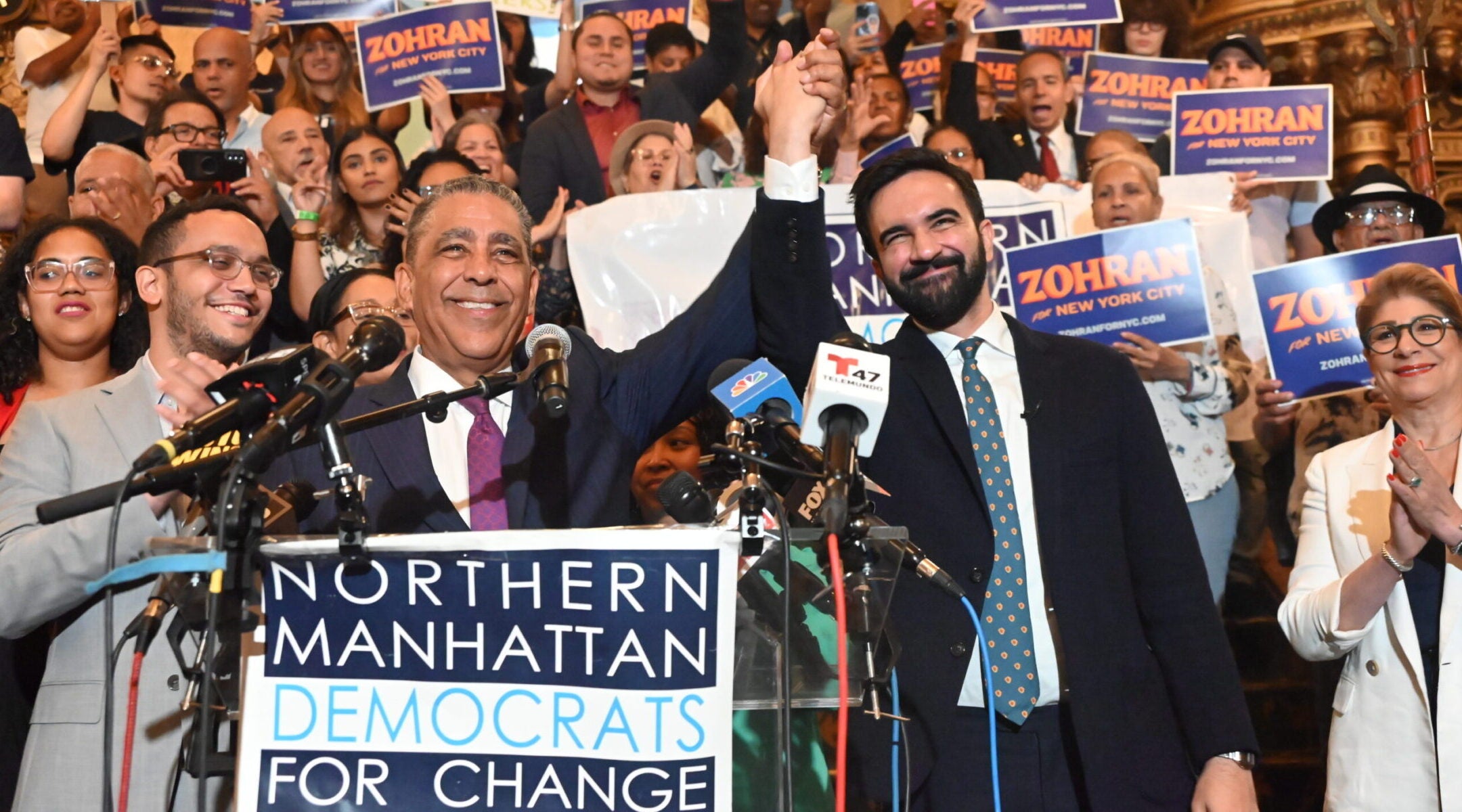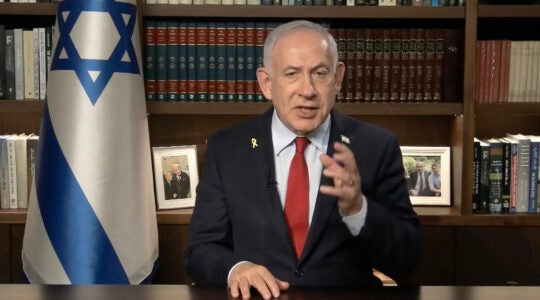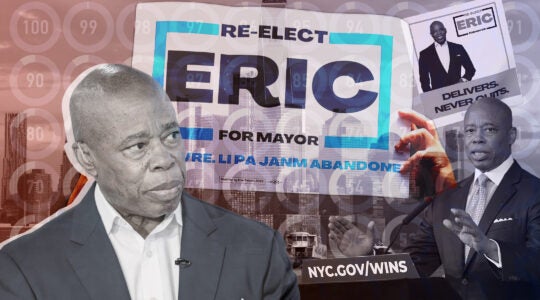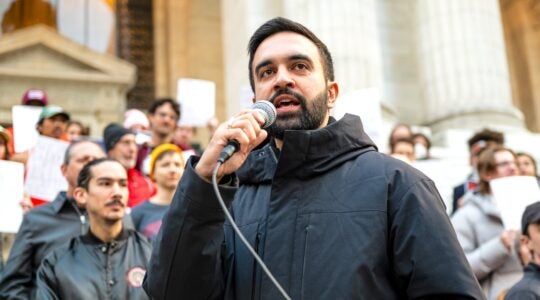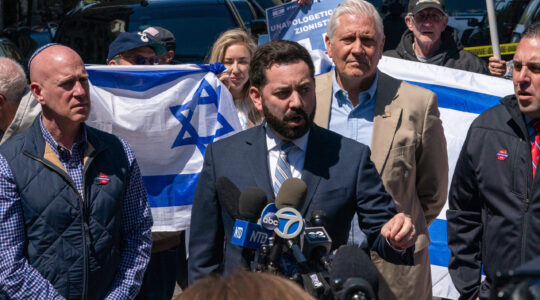Rep. Alexandria Ocasio-Cortez had strong words recently for fellow Democrats who have not endorsed Zohran Mamdani, the party’s nominee for mayor of New York City.
“I am very concerned about the example that is being set by anybody in our party,” said Ocasio-Cortez. “I believe that we must set the example of supporting the party’s nominee.”
Sen. Bernie Sanders sounded a similar note when he appeared alongside Mamdani recently in Brooklyn.
“I find it hard to understand how the major Democratic leaders of New York State are not supporting the Democratic candidate,” Sanders said. Gov. Kathy Hochul had not yet endorsed Mamdani at the time, nor had Senate Minority Leader Chuck Schumer and House Minority Leader Hakeem Jeffries — both of whom remain mum.
Sanders added, “One might think that if a candidate starting at 2% in the polls gets 50,000 volunteers, creates enormous excitement, gets young people involved in the political process, gets nontraditional voters to vote — Democratic leaders would be jumping up and down!”
This week, Sen. Chris Van Hollen of Maryland pressed the case. “Many Democratic members of the Senate and the House representing New York have stayed on the sidelines,” he said during a speech in Iowa. “That kind of spineless politics is what people are sick of. They need to get behind him and get behind him now.”
It’s a position shared by some in the party — but not necessarily by Mamdani himself. While he has reportedly been meeting with party leaders, he has also established a commanding poll lead without their support and hasn’t demanded it publicly.
Mamdani also has not always publicly stumped for Democrats who are up for election — including last year over the very issue, Israel, that some of his skeptics have cited as a reason for holding back their imprimaturs now.
Last year, Mamdani — a state Assembly member representing a portion of Queens — vaulted into public view by entering the mayor’s race in October, just weeks before another pivotal election, that of president of the United States.
But even as his fellow candidates rushed to endorse the Democratic nominee, Kamala Harris, in hopes of staving off a Donald Trump victory, Mamdani — a democratic socialist — stayed quiet about the election. In the primary, he had endorsed New York’s “Leave It Blank” movement to withhold votes from President Joe Biden in the Democratic presidential primary over Biden’s support for Israel. He also expressed admiration for the national Uncommitted movement as a model for “how we can use the ballot box in NY to build pressure for an end to the genocide.”
Once Biden stepped aside and Harris was anointed as the party’s nominee, Mamdani did not deploy the door-knocking, sidewalk-pounding tactics that he had cultivated in his supporters.
Only in June, long after Trump was sworn in, did he publicly say how he had voted. “I proudly voted for Kamala Harris on the Working Families Party line,” he told Politico in June. But he also continued to emphasize on social media that Democrats had left votes on the table over Gaza.
For some, Mamdani’s approach when Biden and Harris were running is evidence that Democrats should feel under no obligation to support him now.
“As NY Democrats line up to endorse Mamdani, presumably expecting something in return, it’s worth remembering that he not only did not endorse Democratic candidates Joe Biden or Kamala Harris in 2024, he actively campaigned against them,” tweeted the journalist Mark Horowitz on Wednesday.
To the Jewish Telegraphic Agency, Horowitz elaborated. “Insofar as many Democratic officials feel obligated to endorse the ‘official’ Democratic candidate as a matter of tradition and party discipline, it seemed worth reminding people that Mamdani feels no such pressure,” he said. “He is not really a Democrat anyway.”
Falling in line behind their party’s nominee is typical but not universal for politicians, according to Costas Panagopoulos, a professor of political science at Northeastern University who has studied endorsements.
“It would be very unusual for politicians to withhold endorsements for candidates of their own political party. So they’re right that that is the norm,” he said, referring to those arguing that Democrats should endorse Mamdani as a matter of course. “But at the same time, that doesn’t necessarily mean that every elected official in a political party needs to fall in line behind candidates within their own party who may be nominees, but whose views they may be less sympathetic with than others.”
Just this week, with Schumer and Jeffries still silent, an influential New York Democrat said publicly that he would not be endorsing Mamdani. Jay Jacobs, the chair of the New York Democratic Party, said he could not support the candidate because of Mamdani’s affiliation with the Democratic Socialists of America and his stances on Israel.
“I strongly disagree with his views on the State of Israel,” said Jacobs, who is Jewish and who reportedly pushed Hochul not to endorse Mamdani. He committed not to endorsing any other candidate.
Panagopoulos declined to comment specifically on how issues related to Israel might be complicating the contemporary endorsement calculus, amid sharply shifting sentiments within both the Democratic and Republican parties, particularly among younger voters and candidates. But he said non-endorsements were worth watching in Mamdani’s case.
“It’s an interesting scenario because this is a candidate who’s not necessarily been part of the establishment, and in that regard, signals are being sent not only by which politicians are endorsing him, but which politicians are not endorsing him,” he said.
Panagopoulos noted that general election endorsements are “rarely determinative, and often follow prospects for victory.” (He said endorsements have a greater impact in primaries — as when Sanders and Ocasio-Cortez jumped into the ring on Mamdani’s behalf, helping to propel him from fringe candidate to frontrunner.)
That means a decision to endorse, or not, can redound more strongly upon endorsers than endorsees. For those who are choosing to back Mamdani despite misgivings, the signal that they can compromise or swing left on Israel at a time when only 8% of Democrats still support its war in Gaza could help win over voters when they seek reelection — for Hochul, next year.
When it comes to Ocasio-Cortez, promoting the idea that Democrats must endorse their own could have a personal payoff, too. The progressive, who is among the few national Democrats to join Mamdani in calling Israel’s actions in Gaza a “genocide,” is reportedly eyeing either a Senate or presidential run in 2028.
With Mamdani moderating on some positions, though largely not on Israel, there are signs that Schumer and Jeffries might overcome their hesitations in the near future. Jeffries has indicated that he plans to make an announcement soon, and Schumer said he had a positive meeting with Mamdani last week — though that was before he reportedly heard from pro-Israel party donors upset that Hochul had given her mark of approval to the mayoral candidate.
Whatever happens in this race, Panagopoulos warns that endorsements, even ones that might feel inevitable or low-cost in the moment, can carry a downside.
“Sometimes, endorsements can come back to haunt politicians in subsequent races, for example, or in other ways,” he said. “So politicians have to be very careful with their endorsements, even if they are for members of their own party.”
JTA has documented Jewish history in real-time for over a century. Keep our journalism strong by joining us in supporting independent, award-winning reporting.
